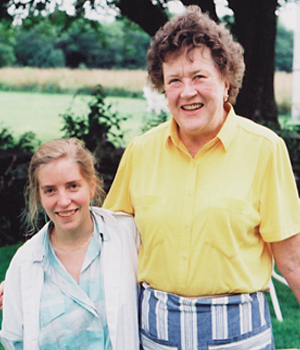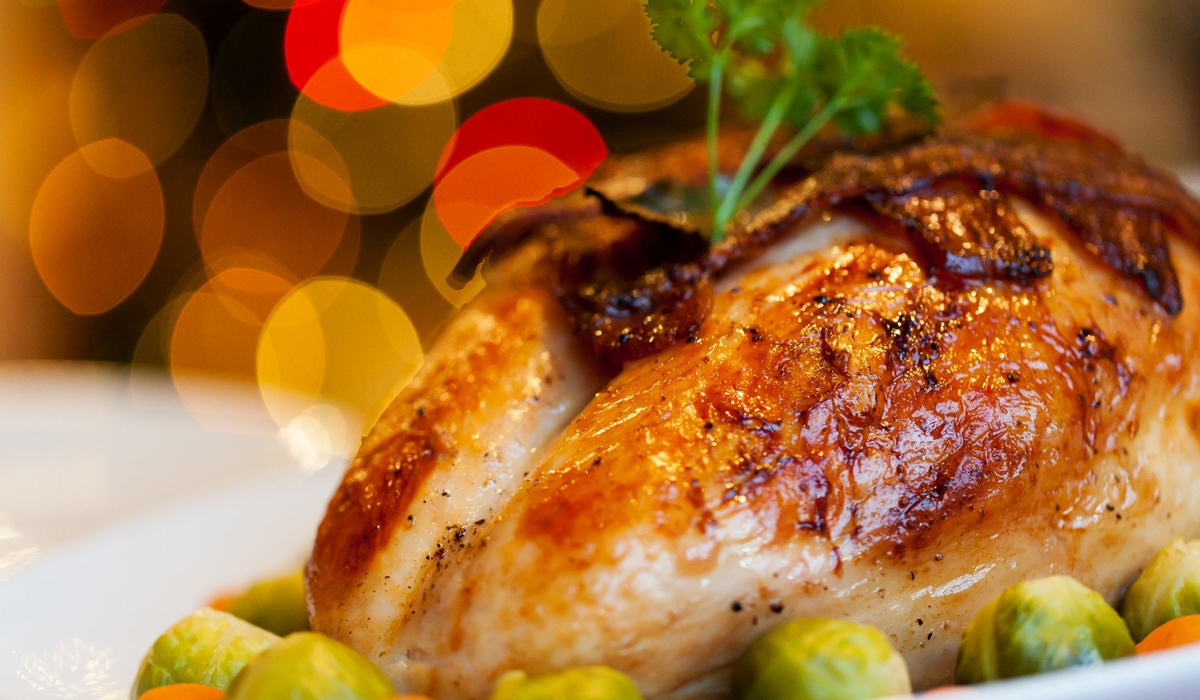With the holidays nearly here and the pandemic far from over, it’s going to be a challenge to whip up the usual feast. Nonetheless, many of us will still attempt to cook for those in our home. My advice is to follow the gospel according to Julia Child: “Never apologize. Never explain.” In short, something will always go wrong when preparing an elaborate meal.
Julia’s philosophy was simple. Embrace the disaster, do what you can to fix it, but tell nobody, because your guests probably won’t notice or care. (Fun fact: Julia had a listed phone number and always took calls, even on Thanksgiving, from cooks with questions.)
Luckily, almost every kitchen mistake is fixable, as long as you stay calm and keep an open mind. Did your soufflé fall? Call it a pudding cake. Are your cookies overcooked? Crumble them over ice cream. Take heart, there are many ways to fix common holiday cooking mistakes, with two exceptions: burned is burned and spoiled is spoiled. One Thanksgiving, Julia answered the phone to this question, “Can I still cook a turkey that has been in the trunk of my car in a heated garage for three days?” “Absolutely not,” she said. “It’s time to order out for pizza.”
Turkey Troubles
Issue: Your guests arrived 30 minutes ago, but the turkey has barely broken 125 F. You need it to reach 165 F, the optimum internal temperature in the leg thigh joint for safe consumption.
Fix: This is not an easy fix (take them to the movies?). But try this. Pull the bird from the oven, cover it with foil, and increase the temperature by 50 F. Pop it back in, and check the temperature every 30 minutes. Once you are within striking range of your target temperature, remove the foil to allow for browning before you take it out, unless the bird is already golden. To avoid this issue in the future, base your turkey cooking time on the longer estimate indicated in the recipe/chart. If it says your 16-pound turkey should cook from 3½ to 4½ hours, plan on the latter, but check the turkey after three hours. If it is nearing 165 F, take it out earlier after browning.
Issue: Your guests have not arrived yet and your turkey has reached 165 F.
Fix: Don’t fret; the turkey needs to rest for at least 20 minutes before carving. Cover it loosely with foil and it will stay rip-roaring hot for up to an hour.

Issue: You carved the breast meat off the turkey first, but a lot of it is still on the carcass.
Fix: Remove the breastbone (wishbone) first. The wishbone blocks the knife from slicing all the way down to the rib cage and makes it hard to get the breast off in one clean piece. And unless you are a professional chef or surgeon, carve the bird in the kitchen when nobody is watching.
Issue: Your turkey is overcooked and too dry.
Fix: Heat the oven to 300 F, carve the meat off the bird, slicing it as you would to serve. Arrange pieces overlapping slightly in a shallow baking pan, then pour some turkey or chicken broth over the turkey. Cover the pan tightly with foil, and heat for 10 minutes or until heated through. Lift the slices out, leaving the broth in the pan, and top with gravy. This technique also works with an overcooked beef or pork roast.
Gravy Strain
Issue: Your sauce looks like there is an oil slick on top.
Fix: Whisk in a little water, and the sauce will become smooth and emulsified again.
Issue: Your gravy is lumpy.
Fix: Strain out the lumps or pour the gravy into a blender in batches (be careful to fill only one-third of the blender because hot liquids expand) and puree until smooth.
Veggie Woes
Issue: Your mashed potatoes are lumpy.
Fix: Leave them as they are (mashing them could make them gluey), and refer to them as smashed, not mashed, potatoes.
Issue: Your mashed potatoes are gluey.
Fix: I used a food processer at my sister’s home when she did not have a ricer or masher and learned it overworks the potato starch, making them inedible. If you can, cook up another batch and mash by hand with a fork if no tools are available. If both potatoes and time have run out, cook a box of pasta, toss in some butter and parmesan, and tell your guests you felt like going Italian this holiday.
Issue: Your Brussels sprouts and/or green beans are overcooked.
Fix: Pulse them in a food processor until they are finely chopped, add them to the mashed potatoes, and call it “Vegetable Mash.”
Dessert Blunders
Issue: The top of your pecan or fruit pie has crumbled, or the top of the cheesecake or pumpkin pie is cracked.
Fix: Layer a fruit or nut pie with ice cream and call it “Pie Trifle.” Camouflage a cracked top with lightly sweetened whipped cream (preferably piped on using a decorative tip) or by dusting the surface with powdered sugar, shaken from a mesh strainer. Place a round paper doily on top first, and you will end up with a lovely pattern. Either fix should be done at the last minute as the whipped cream will eventually get watery and the powdered sugar absorbed into the surface.
Issue: You over whipped your cream and it looks dry and grainy.
Fix: Just add a little more cream and carefully beat it again just until it forms soft peaks.
Cookbook author Sara Moulton (saramoulton.com) is currently the host of the public television show “Sara’s Weeknight Meals” and a regular contributor to Michigan Alumnus magazine.





